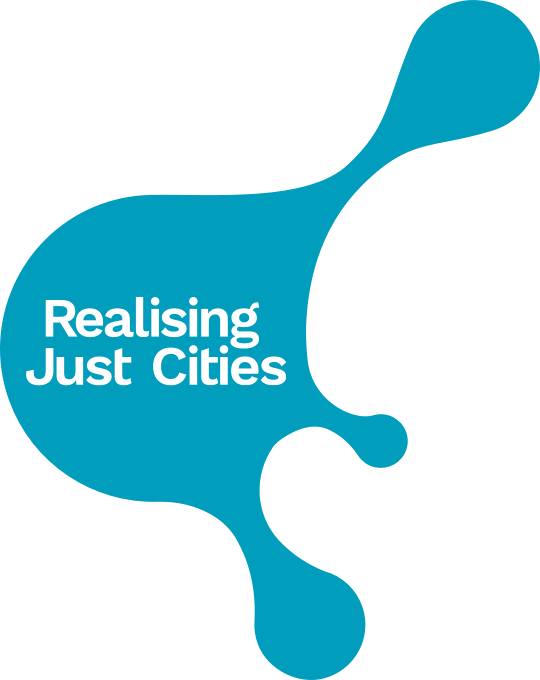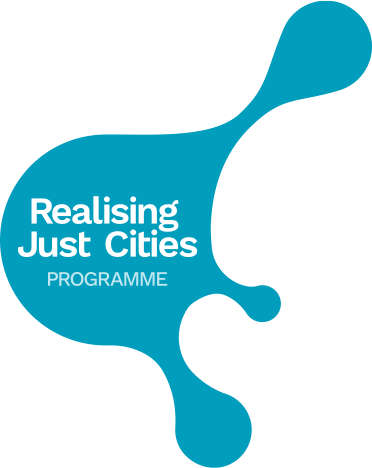From Greater Manchester to Barcelona and back again: lessons on co-production and digital democracy
To exemplify co-productive design principles means challenging the idea of an ‘end-user’ who receives a final report. It means rethinking what impact looks like and how it can be achieved. Our commitment is to engage decision-makers in a collaborative learning journey through informal spaces for exchange and international networking. Trans-local learning is an important element in opening up spaces for learning and dissemination often reserved for academics to urban decision-makers. Trans-localism is more than just cities learning from each other across national boundaries. It points to the need for meaningful interactions between networked individuals and groups of similarly thinking people beyond the local. What is at stake is a sense of belonging through shared perspectives and concerns that transcend local boundaries.
In this third blog for our Trans-local Learning mini-series, Action Research Collective member Alice Toomer McAlpine reflects on her experience at the International Observatory on Participatory Democracy in Barcelona in November 2018.
Blog by Alice Toomer-McAlpine
Last November I attended the International Observatory on Participatory Democracy (IOPD)’s 18th conference in Barcelona, as part of a 6-person delegation from the Realising Just Cities and Jam and Justice teams. As one of two non-academic members from Jam and Justice’s Action Research Collective, I joined representatives from the Greater Manchester Combined Authority, and academic researchers Beth Perry and Bert Russell.
What is the International Observatory on Participatory Democracy?
The IOPD is “a space open to all cities in the world and all associations, organizations and research centers interested in learning about, exchanging impressions and applying experiences of participatory democracy on a local scale with the aim of deepening the roots of democracy in municipal government.”
Why attend the IOPD conference?
My main aims in attending were to:
- gain a wider perspective of global participatory democratic processes
- collect inspirational examples to take back to Greater Manchester
- harvest delegates’ knowledge to inform Jam and Justice’s coalition-building process for 2019, and
- connect with a wider network of international practitioners for potential future collaboration.
The conference hosted panel discussions, debates and participatory workshops centred around three main topics: direct democracy, citizen initiative and ecosystems of inclusive democracy.
Learning from and for Greater Manchester
On the second day, our delegation co-facilitated a workshop entitled “How to co-produce the city: lessons for and from Greater Manchester”. We shared our experiences of co-production in Greater Manchester and posed three main questions to the group, in order to feed into our coalition-building process back home.
This video captures the essence of our session:
We wanted to find out from those at the conference what co-production initiatives are happening in their cities; what wider processes, movements, campaigns or activities are focussed on co-producing the city; and what tools, strategies, methods and values they believe are needed to co-produce the city. The goal was to inform our process of building a coalition for change in Greater Manchester towards a more co-productive city-region.
What did we achieve?
In relation to Jam and Justice, it was helpful to leave our local context in order to place what we are doing in a wider frame and solidify my understanding of the work in relation to other international case studies and movements. Also, attending the conference with a such a mixed group from Greater Manchester gave us all a range of different perspectives and responses to the ideas presented at the conference, making it easier to reflect from a wider GM-based point of view. It also helped to solidify our relationships and identity as a coalition, by coming together outside of our shared context.
What did I learn from the wider conference?
Of the sessions I attended, two stand out:
‘Practices in direct democracy’ included case studies from across Europe. Pascal Clouaire, Deputy Mayor of Grenoble, explained how participatory budgeting and local citizen referendums have been used in the city, and challenged by the French state. Barcelona Councillor Gala Pin shared stories of how the Citizen Initiative mechanism has been used for renaming a public square, funding human rights training for police officers, and an ongoing battle for water remunicipalisation. Examples of the change being made by citizens through different direct democratic tools are heartening. At the same time, the backlash from central government and corporations who stand to lose out from strong local participatory democracies reveals their potential power.
Similar themes were then explored in the digital sphere at the ‘Digital technology and direct democracy’ session. Delegates heard from Marjatta Peltonen about a range of the City of Helsinki’s digital tools currently being used to enhance citizen participation. These include Twitter feedback bots, data processing tools and an API for accessing tracked decisions made by the city council. Peltonen stressed that digital participation is just the tip of a much bigger iceberg, underneath which lies the need for quality service design, staff training, robust internal systems, strong communications and, of course, offline engagement.
Xabier Barandiaran then showcased Decidim, the free and open source platform for citizen participation, currently being used by over 500 city councils, companies and organisations across the world. Highlighting that the platform is not simply about information, but interaction, Xabier explained how Barcelona’s Municipal Action Plan was produced using Decidim, with the involvement of over 39,000 citizens. More than 10,800 proposals were put forward, with 72% accepted.
I heard more about Decidim on the third day of the trip when I attended #Jam18, the annual assembly of the democratic community who manage the Decidim platform: Metadecidim.
So what . . . ?
This engagement with Decidim is directly informing the focus and direction of GM Decides, the Jam and Justice project I am now working on, which explores the potential for digital democratic innovation in Greater Manchester. I see two main consequences:
-
We are able to use Decidim as a detailed case study and inspirational example, and more importantly, see its place in a wider emerging movement of digital democratic innovation.
-
It has placed our focus on the role of women within this movement, both in terms of the opportunities digital democratic innovations such as Decidim open up for women’s participation, but also how women and feminised politics have impacted on these innovations and what the implications of this could be for creating a more inclusive, participatory and just city.
As well as these practical takeaways, I left the IOPD with a number of reflections that will inform my work back in Greater Manchester, both within and outside of Jam and Justice.




